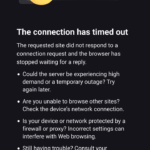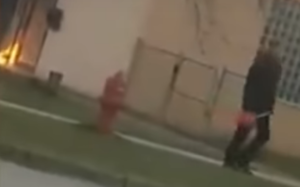I don’t generally take much notice of the Olympics — I left the country when they came to my city — but, as we all know, they get lots of press. You can’t miss them.
So, of course, I’m aware that a certain American gymnast suddenly stopped competing, apparently after not doing so well in one of her early events. I’m not even going to name her, but she is named in this CBC News story.
I’ve never competed at that level in any endeavour, sport or otherwise, but you don’t get to “that level” overnight; it’s a gradual progression of relentless training and competition. Theoretically, only those physically and mentally tough enough to compete at each level make it to the next level. And at each level there is tougher and tougher competition, and more and more pressure to perform, and greater and greater hopes and expectations, on the part of both the athletes and their fans/spectators.
As I say, I’ve read the article I’ve linked to above. I haven’t read much else about her and her decision, but the article above does seem to give a reasonably balanced view of her decision. However, the fact is, as I stated above, that she wasn’t recruited a week before her performance in Tokyo and thrust into the limelight with no preparation and the weight of the world on her shoulders; she’s had years to get there, to improve and adapt both physically and mentally.
The fact is that she quit the moment she didn’t quite perform up to snuff, and she is using the claim that she is taking care of her “mental health” as a crutch, and excuse. Recently tennis player Naomi Osaka also pulled out of competition with the same excuse. I scoffed at that too, to myself, although until now I wasn’t really as aware of the details as I don’t follow sports as closely or avidly as others. However, in Osaka’s case, she did not quit the moment things didn’t go her way; as I understand it there were a number of setbacks, not the least of which was the seemingly overbearing reaction to her plans to subject herself to less media scrutiny. She did, in her case, seem to be telegraphing that she needed some “space”, and when the jerks fining her started piling the pressure on top of that, she gave in. (With her wealth, it wasn’t the money, I’m sure.) Did she have more or less of an excuse to cave at the moment she did than the moment at which the American gymnast caved? I don’t really know … or care. It’s just that I don’t think there is really a valid comparison, as some have been making.
Should athletic organisations spend more time and effort training their athletes to be able to handle more pressure? How much pressure should they be able to handle? How do you objectively measure pressure? To answer that last question, I don’t believe you can. You only intuitively know when someone can’t handle pressure after the fact. And we all now know that the American gymnast can’t, and so therefore probably isn’t Olympic material.
Updated, 2021-09-08: I gave Naomi Osaka some leeway in this post, but after her performance during and after her match with Leylah Fernandez, I’m chucking her in the same category as Simone Biles. I see some commentators referring to this growing group as “Team Quit” and “Generation Quit”.


















